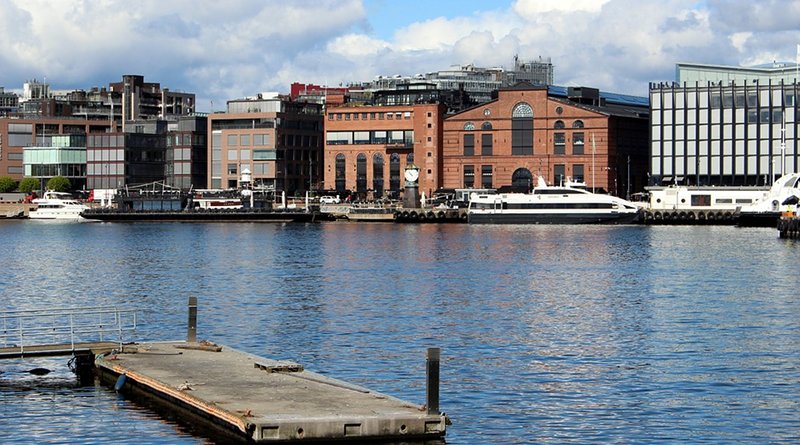For A Weekend In Oslo, Palestine Comes To Life – OpEd
By MIFTAH
By Julie Holm
As the room gets darker, I lean back in the deep red chair and for a while I forget about the heavy jackets, big winter boots, the snow and the icy cold outside. Along with everyone else in the dark room I am taken on a journey back to Palestine, and when I see the first glimpse of the beautiful Palestinian scenery on the screen, I forget about Oslo. In the lobby, a DJ was playing Palestinian music, Palestinian women in embroidered shawls were speaking to each other in Arabic and a boy was teasing his younger sister, poking her, saying “sho, sho (what, what)?” At the Oslo Palestine Film Festival I reunited with Palestine even before the films started.
This cold February weekend marked the first edition of the Oslo Palestine Film Festival. Organized by TrAP and the Norwegian Palestine Committee, the film festival offered the citizens of Oslo an array of nine films; long and short, documentary and fiction, from both newcomers and established filmmakers. The festival aims at presenting the richness and diversity of Palestinian film culture. For me, as for many others attending the festival, it stirred up a mix of emotions, reminding us of the horrors that have been going on for so long but also of the strong Palestinian people, who all in their own way fight to keep the hope alive.
The opening film was Elia Suleiman’s ‘The time that remains’. This semi-autobiographical film portrays the history of Palestine through the history of a family, from 1948 until recent times. This beautiful film touched me as I am sure it did many others. But it wasn’t until I saw the familiar streets of Ramallah up there on the big screen that the tears came rolling down my cheeks. Unprepared for this to happen, I realized what was going on; these were the streets where I walked every day, the streets that were telling this same story. This was just one of many times my eyes filled with tears during that weekend which in many different ways portrayed the stories of Palestine and the Palestinians.
Attending the festival was Kamal Aljafari, who showed his film ‘Port of Memory’ and gave a Q and A to the audience after the screening to give them a better understanding of the film that mixes art and documentary. Taking place in Jaffa, the title as the film itself, suggests that all that is left of the port of Jaffa is the memory. As Aljafari focuses on ways of coping with the memory of the Palestinians in Jaffa he also says that one of the best things that can happen to a person is to forget. A Palestinian filmmaker, however, has to remember in order to make films like this. He shows how the main characters of the film – his own family, come up with rituals to cope with the fact that they are evicted from their house. Almost like a prayer, everyone has their own rituals, a way of surviving.
May Odeh, who was also the curator of the festival, showed her film ‘Diaries’ about three young women and their life in Gaza. These women’s narratives, woven together by Odeh’s own stories in voiceover, portray their daily struggles in Gaza, against the siege and against the fundamentalist impositions of the authorities there. It shows a city full of energy, under dire conditions. As it is centred on the diaries of the three women, the film is also about memory, and remembering or forgetting the past. More than this, however, it is about hope and visions of the future.
Using humour and irony, art, fiction and documentary, the Oslo Palestine Film Festival managed to give the audience a wide insight into life in Palestine. It showed the breath of genre and style in Palestinian filmmaking and most importantly it showed sides of Palestine other than the one filled with misery and oppression presented in Norwegian media. It was a weekend full of remembering and forgetting, of hopes and dreams that may seem a world away when projected on a big screen in Oslo but are at the same time, very much representative of the reality that is Palestine.
Julie Holm is a Writer for the Media and Information Department at the Palestinian Initiative for the Promotion of Global Dialogue and Democracy (MIFTAH). She can be contacted at [email protected].

